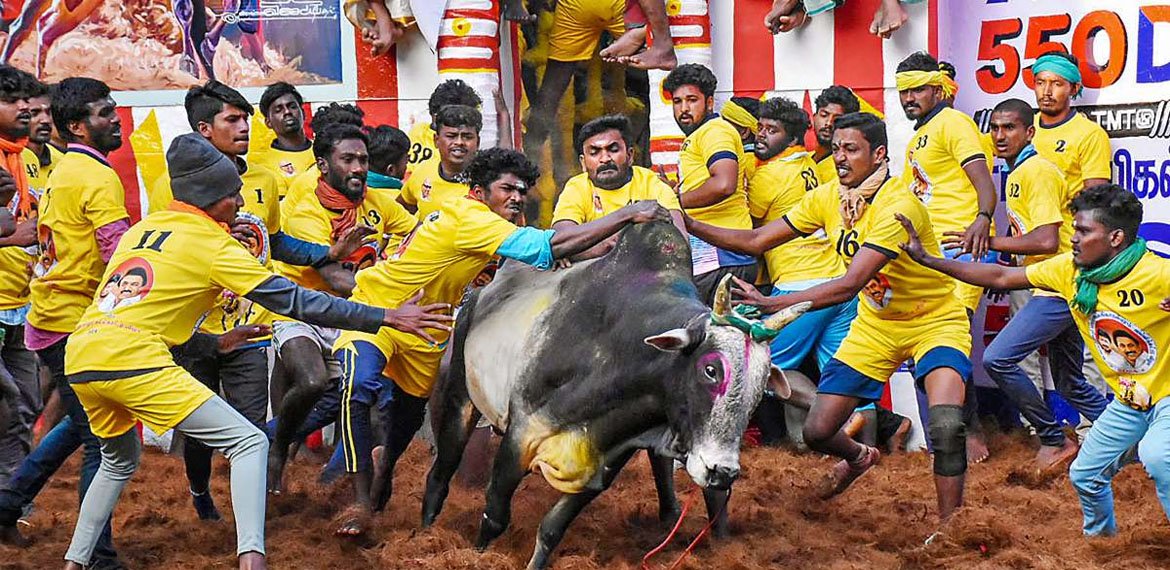
Introduction to Jallikattu:
Jallikattu, also known as Sallikattu, is a traditional sport deeply rooted in Tamil culture. The term "Jallikattu" translates to "bull embrace," reflecting the essence of the game where humans attempt to tame bulls by either running away from them or grabbing their horns to bring them down. This revered sport is an integral part of the Pongal festival celebrations and is held annually in various towns across the Madurai District, including Avaniyapuram, Alanganallur, and Palamedu.
Origin and Evolution of the Name:
The name "Jallikattu" finds its roots in the Tamil language, with "Salli" referring to the ring tied around the cow's neck during the ceremony. Over time, the custom of tying Indian coins, known as "Sallik Kasu," to the cow's horns led to the evolution of the term "Sallikattu." Eventually, this practice transformed into "Jallikattu" in colloquial usage.
Duration of the Festival:
This is a one-day festival that is celebrated on the third day of the famous cultural festival of Tamilnadu, Pongal. On the day of Mattu Pongal, which mostly falls between 13-14 January and 17 January every year, this bull taming sport is organised in the villages of Tamilnadu.
Varieties of Jallikattu:
Jallikattu is conducted in various forms across Tamil Nadu, each with its unique rules and practices. These include Veli Manchuviratu, Wadivasal Jallikattu, Vadam Jallikattu, and Manju Virattu, each showcasing different methods of engaging with the bulls and capturing the essence of the sport.
Different Categories Explained:
- Veli Manchuviratu involves unleashing bulls within an arena where youth attempt to chase them away.
- Wadivasal Jallikattu, observed in places like Alanganallur and Madurai, sees participants chasing bulls out of a designated gate and trying to hold onto their thimble.
- Vadam Jallikattu, prominent in northern Tamil Nadu, features bulls tied with ropes, with participants attempting to capture the prize money from their horns.
- Manju Virattu, celebrated in villages around Sivagangai district, involves chasing and capturing cows adorned with various gifts tied to their horns.
Cultural Significance and Rituals:
Jallikattu holds deep cultural significance, intertwined with rural deity worship beliefs. It is associated with prayers during times of adversity, such as disease outbreaks or droughts, and is performed on Pongal Day as a form of ritualistic worship to seek blessings and ward off misfortune.
Distinction from Bullfights in Other Countries:
While bullfighting is practiced in countries like Spain, Portugal, and Mexico, it differs significantly from Jallikattu. The objective of traditional bullfighting is to provoke bulls to fight within an arena, whereas Jallikattu focuses on human-bull interaction, with participants attempting to tame the bulls without harming them, emphasizing skill and bravery over confrontation.
By organizing the content into headings, each section becomes distinct, making it easier for readers to navigate and understand the various aspects of Jallikattu.

